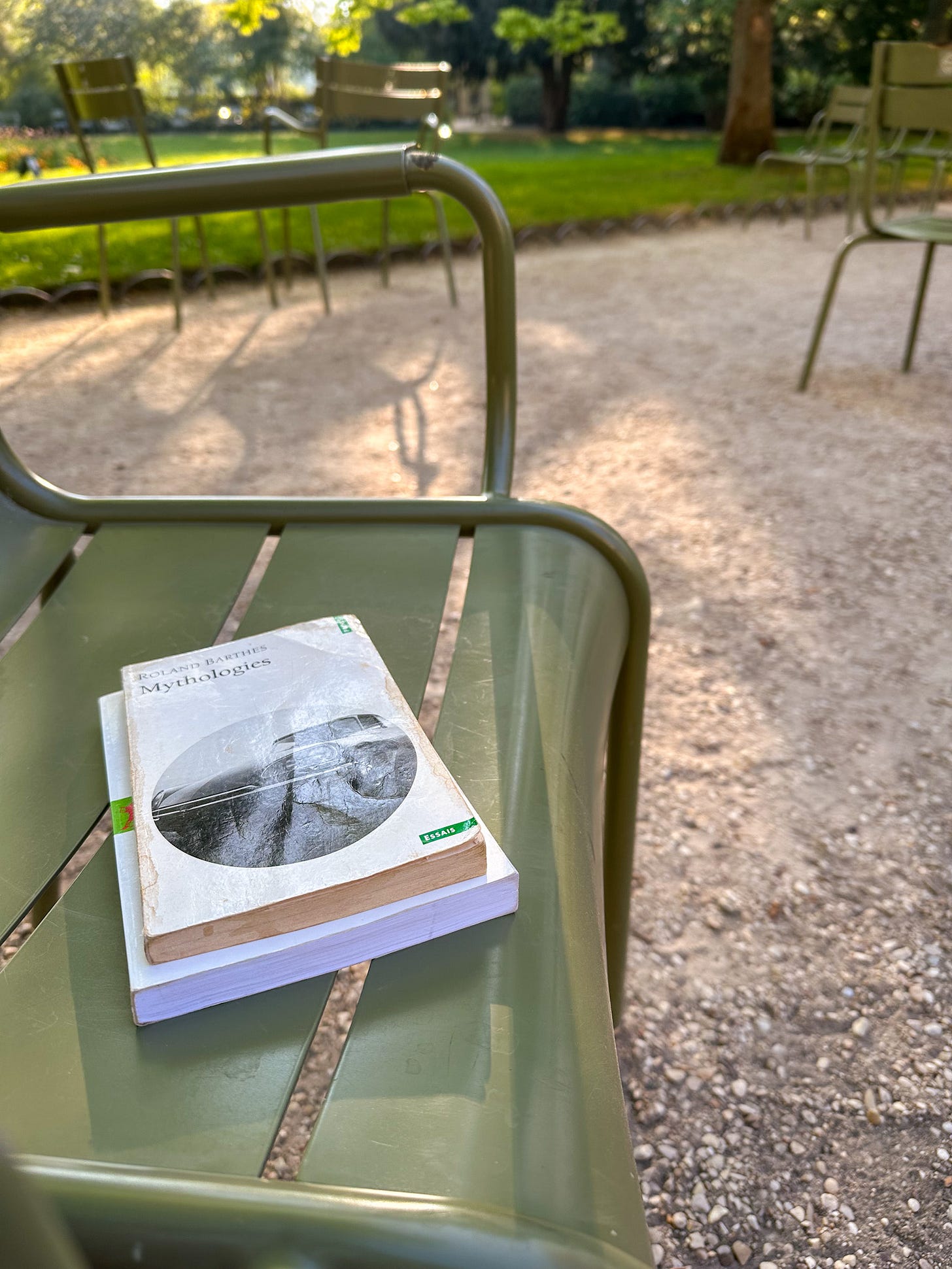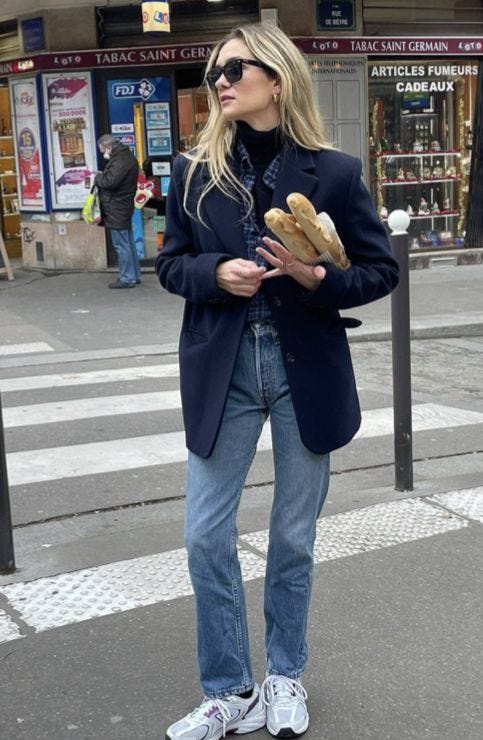Do We Actually Choose What We Wear?
How moving to Paris at six made me question everything I thought I knew about clothes.
When I was six, we moved from Honolulu to Paris. We arrived in September, just in time for the cold to set in. My wardrobe still reflected the sunny world I came from: I remember proudly wearing a matching Beauty and the Beast set with rose-printed leggings and a ruffled top, and a Little Mermaid sweater with Ariel embroidered across the chest. To my new French classmates, I looked like I’d landed from another planet — and they loved it. I now suspect their parents didn’t.
The Belle-and-Beast ruffles soon became too small, and within a few months, I was asking to wear navy skirts, cable knits, and structured coats from Jacadi. Without realizing it, I had absorbed the cultural dress code around me. My wardrobe had shifted — along with my identity.
Now, raising my own (mostly neutrally dressed) children, I often think about that moment of transformation. It got me wondering: Do we really choose what we wear? Or is it already decided for us somehow?
In light of that, I wanted to share two foundational reads that helped me shape my answer to that question — and that might inspire you to think differently about your own closet, too.

The first is Roland Barthes, the French philosopher and semiotician known for Mythologies and Système de la mode. He argued that fashion is not just about aesthetics — it's a full-fledged language. What we wear sends a message before we speak. A navy trench, a bright red lip, even a certain heel height — these aren’t just personal choices, but signs. Part of a social grammar. Looking back, I can see now how trading my mermaid sweater for a cream cable knit sweater wasn’t just a style shift — it was me, learning the vocabulary of my new culture.
The second is Guillaume Erner’s Victimes de la mode?, a brilliant little book that unpacks the illusion of fashion as pure self-expression. Erner, a sociologist and now brilliant host of France Culture’s Matinale, reminds us that even when we think we’re being original — or rebellious — we’re often just choosing a different uniform. Style, he argues, is never neutral. It’s a form of positioning: a way to show who we are, where we belong, and sometimes, what we reject.
Living near a couple of Parisian high schools, I see this play out daily. At one, it’s all skater jeans, crop tops, puffers, and UGGs — each a soft rebellion dressed up as autonomy. At the other, where jeans are reportedly forbidden, it’s corduroy pants, Saint James knits, ballerina flats, and boat shoes — a quiet signal of belonging to a more religious, more conservative Paris. Neither school spells out what to wear. But both send the message clearly.
Even nonconformity wears a uniform — especially in our privileged Western societies.
And yet, we still feel like we’re choosing. We tweak, we adapt, we express — but always within boundaries we’ve absorbed over time, often without realizing it.
In Paris, those boundaries are subtle but sharp. The city has its codes. On the Left Bank, classics still rule: navy, camel, ballet flats, perfectly worn-in denim. No one tells you what to wear — but somehow, you just know what not to wear. You can resist, of course. But your life might be a little smoother if you don’t.

That’s not necessarily a bad thing. But it’s worth being aware of.
So… do we actually choose what we wear? Or do our clothes choose us? I’m not sure the answer matters as much as becoming aware of the question. That awareness alone can open up new possibilities — for creativity, for resistance, or simply for deeper understanding.
If you’re curious to dive deeper into the two books I mentioned, you can find them here:
Mythologies – Roland Barthes
Victimes de la mode? – Guillaume Erner
And I’d love to hear your thoughts — especially if you’ve had a similar experience of changing your style without noticing, or realizing just how influenced we all are by where we live, work, and grow up.
Comment below and tell me: Do you dress freely?
Bisous,
Pamela




I would have loved reading the right bank’s style in comparison to the left :)
I really liked what you said : "what's important is becoming aware of the question", since you it is, like you say, communication.